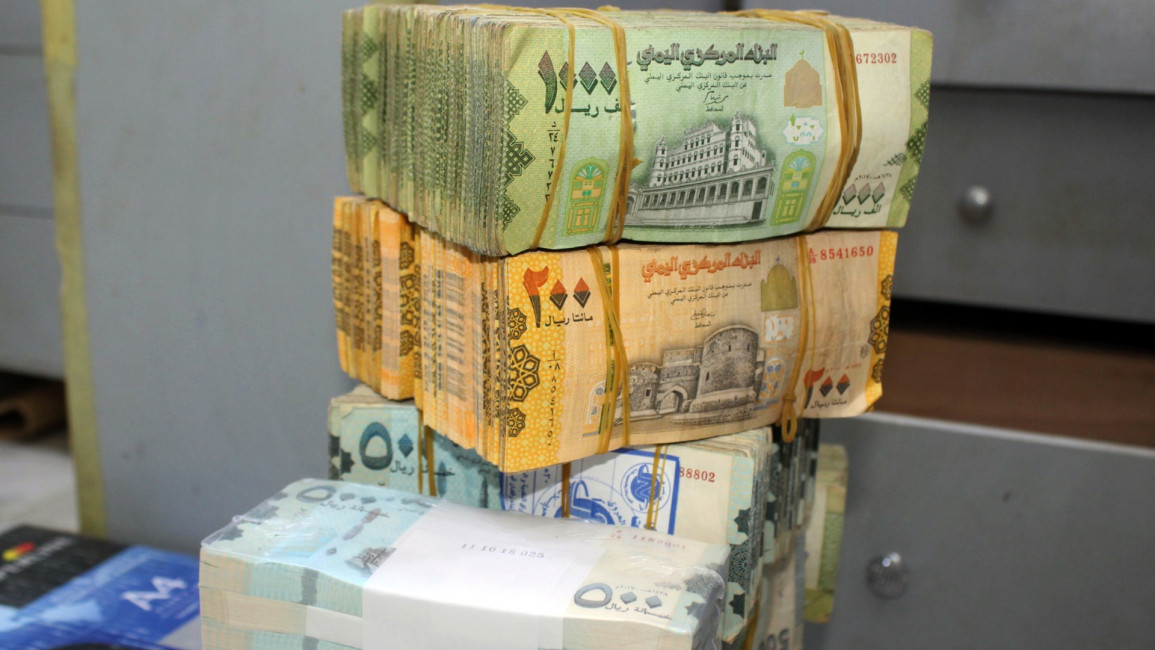Protests erupt in Yemen's Taiz over unpaid salaries
The protesters, mainly teachers and staff members working for the Education Office at the country's third largest city, urged the internationally-recognised government to take action, local Al-Masdar Online reported.
The protest was organised by the Yemeni Teachers Syndicate, the Coordination Council for Trade Unions as well as other civil society organisations, including Mateen.
Most of Yemen's public workers across the country have gone unpaid for years as the country's finances and economy collapsed in the war, which has dragged on since 2014.
Yemen's government has long accused the Houthi rebels of "looting" payments meant for public sector workers.
Last month, Minister of Information Muammar Al-Iryani claimed the rebels had stolen some 40 billion Yemeni rials from the Central Bank in Hodeida.
"The Houthi militia has been stealing billions under the pretext of paying half a salary every six months for public sector employees working in areas under their control," Al-Iryani told Yemen's Saba news agency.
"It is possible to pay full salaries, on a regular basis, to all state employees according to the 2014 statements, if [the Houthis] returned the looted funds from the salaries' accounts and commit to channelling the Hodeidah port revenues [into acounts]."
Twitter Post
|
Since the start of a Saudi-led military campaign against Houthi rebels in March 2015, the riyal has lost more than two-thirds of its value with the UN confirming that the exchange rate is at "crisis levels".
The Yemeni currency nose-dived despite Saudi Arabia depositing billions into the government-run Central Bank, which moved to Aden in 2016 after President Abedrabbo Mansour Hadi announced the southern city as his administration's temporary capital.
The slide in the value of the currency has triggered a sharp rise in the prices of basic commodities, especially food and fuel.
Last week, a senior UN official warned that war-torn Yemen is sliding toward famine as the coronavirus spreads and its economy implodes - all amid a funding crisis that is forcing the United Nations to make deeper aid cuts, including stopping treatment for 250,000 severely malnourished children.
The UN has received just 21 percent of its $2.4 billion humanitarian appeal for 2020, Assistant Secretary-General for Humanitarian Affairs Ramesh Rajasingham told the UN Security Council.
"It is extremely disappointing” that only about half of the $1.35 billion in humanitarian aid pledged in June has actually been paid," Rajasingham said, adding that the pledge was only half of what the UN received last year.
"I call on all donors - and especially Yemen's neighbours in the Gulf - to pay all pledges now," he said. "And I call on those who did not pledge, or who pledged less than last year, to increase their support."
The conflict has killed more than 100,000 people and created the world's worst humanitarian disaster, with more than 3 million people internally displaced and two-thirds of the population relying on food aid for survival.
Follow us on Facebook, Twitter and Instagram to stay connected



